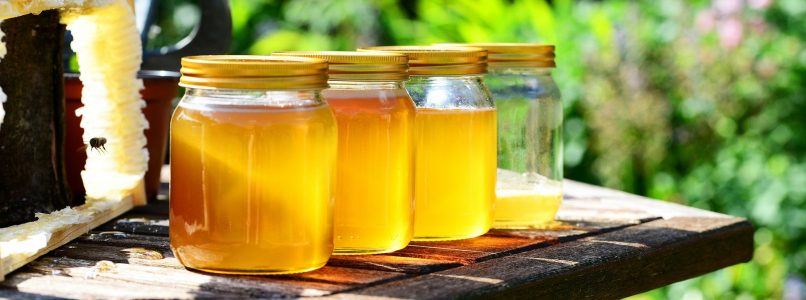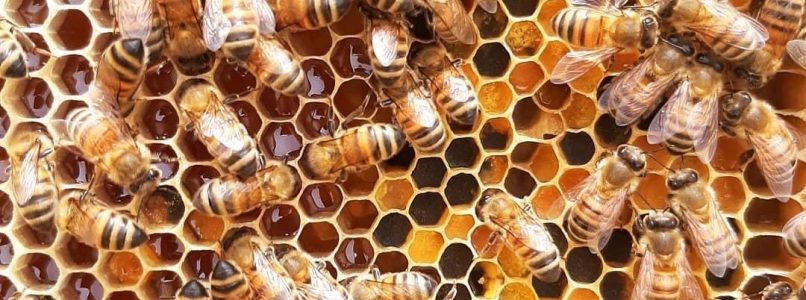MSC Marine Stewardship Council, international non profit organization responsible for the most important global program of fish sustainability certification, also this year adheres to World Oceans Day on June 8, 2020 and it does so with the social campaign "Great blue future" to remind everyone of the strong link between our daily life and the great blue, which we can protect by choosing fish from a sustainable source.
How to do it? By purchasing those products they present the blue mark of MSC on the packaging, guarantee of fishing managed according to strict scientific sustainability standards.

Great blue future
"The oceans need the commitment of all of us to return to health," says Francesca Oppia, MSC program director in Italy. "While overfishing, climate change and pollution put ever greater pressure on our oceans, the choices we consumers make daily can change the entire fish supply chain."
Countryside "Great blue future" MSC Pesca Sostenibile wants to leverage these concepts and invites everyone to share a social collage on social media alongside the photo of a piece of sea food "from their heart" with a snapshot of a fish recipe made at home, using the hashtag #grandefuturoblu and tagging MSC Italia on Instagram @msc_italia and on Facebook @mscinitalia.
And for those who were not so practical or imaginative in the kitchen? Don't worry, MSC Italia recommends you 4 simple recipes: mussels with cider, cod with curry, salmon with gin and tuna bowl.
Scottish mussels with cider, leek and bacon
Preparation time: 15 minutes
Cooking time: 15 minutes
Portions: 4 people
Ingredients
1 kg of MSC certified mussels
150 g of smoked bacon, roughly chopped
1 leek, washed and sliced on the diagonal
1 bottle of 330 ml dry Scottish cider
50 ml cream
1 curl of butter
Chopped parsley
Freshly ground black pepper
Crispy bread, for serving
Method
Wash mussels under cold running water. Eliminate the "beard" still attached to the shell. If the mussels are open, picchiettatele firmly on the side of the colander or bowl, they should close immediately. discard those that remain open or those with cracked or broken shells.
In a large pan, casserole or wok with lid, melt butter over medium heat. During foaming add the bacon and brown it for a few minutes until the fat starts to shrink. Add the leeks and sauté them for another two minutes.
Pour the cider in the pan should boil and lather. Simmer for a minute, then slightly lower the heat.
transfer mussels in the pan, cover with a lid and let them cook with their steam for 4-5 minutes, until they are all open. shake every now and then the pan to help the mussels to open. Add cream and sprinkle with a generous handful of chopped parsley. Mescolatand all and serve immediately, divided into four bowls. Do not forget to serve to add the cooking broth, bacon and leeks to the bowl. serve with extra parsley and crusty bread.

Gin salmon with pickled cucumbers
Preparation time: 15 minutes
Cooking time: 5 minutes
Portions: 4 people
Ingredients for salmon
1 kg of MSC certified salmon cleaned from scales
100 ml of gin
50 g of fine salt
50 g of sugar
Zest of 1 lemon
Ingredients for pickled cucumbers
2 large cucumbers
2 shallots
50 g of coarse salt
120 ml of white wine vinegar
75 g of granulated sugar
1/2 tablespoon of mustard seeds
1 teaspoon of turmeric
Fresh dill
water
Method
In the first place, roll out on a large pan of plastic wrap. Jumbled up zest of lemon and lime with gin, salt and sugar in a bowl and distribute 1/4 of this mixture on plastic wrap.
place the side of the salmon with the skin on top of this mix in the pan and cover it with the remaining mixture. Wrap all in plastic wrap and put it in the refrigerator for a period of between 6 hours and maximum 2 days. The longer you leave the salmon, the more solid and flavorful it will be, so it depends on how you like it. 24 hours are recommended.
When you are ready to serve the dish, remove the salmon from the fridge, discard it from the cling film, washed salmon under cold running water and transfer it
on a cutting board. Cut thinly slice the salmon and serve with pickled cucumbers.
To make pickled cucumbers
Cut half-length cucumbers, remove the seeds in the center, digging gently with a teaspoon and then cut them with the help of a half moon, until they are about 1/2 centimeter thick. Slice shallots and add them to cucumbers in a bowl. cover with salt and leave for 2 hours, but if you have time, even up to 4 – they should be slightly soft but still have a little crunchiness. rinse well with cold running water, drain and dry them with paper towels. place white wine vinegar, sugar and spices in a pan and simmer. Add cucumbers and shallots and simmer for another 2 minutes. Switch off the fire and add the dill, then let it cool. When everything is completely cold, transfer to a sterilized jar and keep them for up to 1 month. Serve the salmon with cucumbers, rye bread, sour cream, watercress and chopped beetroot (Scandinavian-inspired accompaniment).

Japanese marinated rice and tuna
Preparation time: 45 minutes
Cooking time: 30 minutes
Portions: 2 people
Ingredients
150 g of sushi rice
2 tablespoons of white sesame seeds
4 tablespoons of soy sauce (salted)
2 tablespoons of mirin (Japanese rice wine)
2 tablespoons of sake (or 1 tablespoon of mitsukan and 1 tablespoon of water)
150 g of MSC certified yellow fin tuna fillet, thinly sliced
1 spring onion cut into thin slices
½ nori sheet, torn into large pieces
Wasabi
salt
Method
Rinse rice at least four times under cold running water. Drain it and set it aside for about 20 minutes.
Meanwhile toasted sesame seeds in a dry pan over medium heat until golden brown and also set aside.
transfer rice in a pot, add equal amount of water and a pinch of salt. Bring to a boil, cover and simmer gently for 15 minutes. After that let it rest the rice with the heat off and with the lid on for 15 minutes so that it cools slowly.
Put to marinate tuna in a mix of soy sauce, mirin and sake for 2-3 minutes. serve rice in a bowl adding the sliced spring onion and nori; to this base add the slices of marinated tuna with a final sprinkling of sesame seeds. Serve the bowl with a little wasabi aside to add as desired.

Cod with curry vegetables
Preparation time: 10 minutes
Cooking time: 15 minutes
Portions: 4 people
Ingredients
4 cod fillets MSC certified
Curry powder
Extra virgin olive oil
¼ cup of carrots
¼ cup of celery
¼ cup of zucchini
¼ cup of porcini mushrooms
¼ cup of corn
¼ cup of onion
¼ cup of leeks
1 clove of garlic
1 tablespoon curry powder
1 tablespoon of tomato paste
1 tablespoon of raisins
200 ml of vegetable broth
fresh coriander
Method
Cut diced vegetables. brown them in the pan with the crushed garlic and a drizzle of oil, seasoned with curry powder, salt and tomato paste and heat over high heat. Add raisins and vegetable broth, bring to a boil and simmer for 15 minutes.
Meanwhile jumbled up oil with curry and salt and massage the cod fillets to flavor. Heat a pan and roast the cod with the skin facing down until golden brown. The oil must not be too hot, otherwise the curry powder will burn out.
Add stewed vegetables, finely chopped coriander and serve the fish fillets on the curry vegetables, decorating with a little fresh coriander.

MSC sustainable and certified fishing
More than 350 companies fishing in 34 countries they are certified according to the MSC standard for sustainable fishing. These companies almost fish the 15% of the global catch. More than 36,000 fish products worldwide have the blue mark MSC.
MSC also, in collaboration with Globescan, recently carried out research in 23 countries globally, with a focus onItaly and the progress that has emerged is important. Among the actions implemented, 1 in 4 people has opted for brands that offer sustainable products and the 74% of Italian consumers is fully aware that in order to contribute to the health of the oceans it is necessary to choose sustainable fishing products.
But the most encouraging data regards the future: the85% of Italians he is ready to take the field to protect the health of the oceans and more and more Italians declare that they will choose brands and stores that offer sustainable products, reaffirming that they are ready to change their habits by changing the species consumed if this should be necessary. Find out more on the official website of MSC Italia.








